
Chinatown Semarang: A Melting Pot of Heritage and Culture
Nestled in the heart of Semarang, Chinatown Semarang is a vibrant neighborhood teeming with life, history, and culture. This historic district is a testament to the rich Chinese heritage that has been interwoven with Indonesian traditions over centuries. As you wander through its bustling streets, you will be greeted by the sights, sounds, and aromas that make this area truly unique. The architecture in Chinatown Semarang is a fascinating blend of traditional Chinese temples, colonial Dutch buildings, and modern Indonesian structures. Don't miss the opportunity to visit the iconic Sam Poo Kong Temple, a beautifully preserved site that dates back to the 15th century. The temple complex is not only a place of worship but also a living museum that offers a glimpse into the past. Food lovers will find themselves in paradise here, with a plethora of street food stalls and local eateries serving up an array of delicious Chinese and Indonesian dishes. From savory dumplings to sweet mooncakes, the culinary delights are endless. The night market is particularly popular, offering a sensory overload of flavors, colors, and sounds. Chinatown Semarang is also a hub for shopping enthusiasts. The narrow streets are lined with shops selling everything from traditional Chinese medicines and herbs to beautiful batik fabrics and intricate handicrafts. Bargaining is a common practice here, so be prepared to haggle for the best deals. Whether you are a history buff, a foodie, or simply someone looking to immerse yourself in a rich cultural experience, Chinatown Semarang has something to offer. Its unique charm and lively atmosphere make it a must-visit destination in Semarang.
Local tips in Chinatown Semarang
- Visit Sam Poo Kong Temple early in the morning to avoid the crowds and enjoy a peaceful experience.
- Try the local street food but make sure to ask for recommendations from locals to find the best stalls.
- Wear comfortable shoes as you will be doing a lot of walking on uneven surfaces.
- Carry cash as many small shops and street vendors do not accept credit cards.
- Be prepared to bargain while shopping to get the best prices.
- Visit the night market for a unique shopping and dining experience.
Chinatown Semarang: A Melting Pot of Heritage and Culture
Nestled in the heart of Semarang, Chinatown Semarang is a vibrant neighborhood teeming with life, history, and culture. This historic district is a testament to the rich Chinese heritage that has been interwoven with Indonesian traditions over centuries. As you wander through its bustling streets, you will be greeted by the sights, sounds, and aromas that make this area truly unique. The architecture in Chinatown Semarang is a fascinating blend of traditional Chinese temples, colonial Dutch buildings, and modern Indonesian structures. Don't miss the opportunity to visit the iconic Sam Poo Kong Temple, a beautifully preserved site that dates back to the 15th century. The temple complex is not only a place of worship but also a living museum that offers a glimpse into the past. Food lovers will find themselves in paradise here, with a plethora of street food stalls and local eateries serving up an array of delicious Chinese and Indonesian dishes. From savory dumplings to sweet mooncakes, the culinary delights are endless. The night market is particularly popular, offering a sensory overload of flavors, colors, and sounds. Chinatown Semarang is also a hub for shopping enthusiasts. The narrow streets are lined with shops selling everything from traditional Chinese medicines and herbs to beautiful batik fabrics and intricate handicrafts. Bargaining is a common practice here, so be prepared to haggle for the best deals. Whether you are a history buff, a foodie, or simply someone looking to immerse yourself in a rich cultural experience, Chinatown Semarang has something to offer. Its unique charm and lively atmosphere make it a must-visit destination in Semarang.
Iconic landmarks you can’t miss
Lawang Sewu
Explore Lawang Sewu, a breathtaking historical landmark in Semarang, Indonesia, renowned for its stunning architecture and rich colonial history.
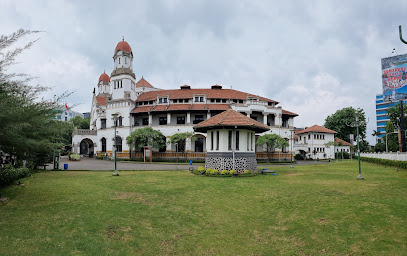
Wisata Sam Poo Kong
Explore Wisata Sam Poo Kong, a stunning Buddhist temple in Semarang, where spirituality meets rich cultural heritage amid serene surroundings.
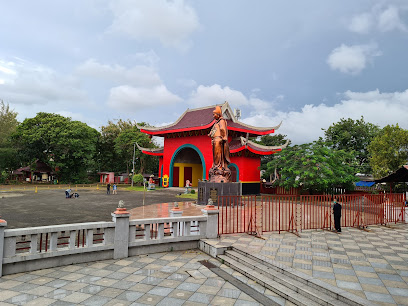
Tugu Muda Semarang
Explore Tugu Muda Semarang, a historical landmark that symbolizes Indonesia's fight for independence amidst the vibrant culture of Semarang.
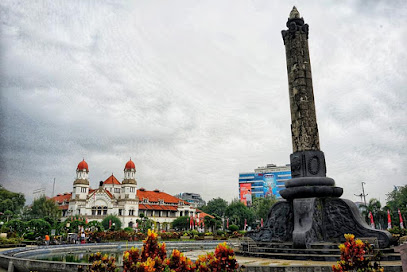
Waroeng Semawis
Experience the vibrant atmosphere of Waroeng Semawis, Semarang's premier night market, filled with delicious food and unique local crafts.
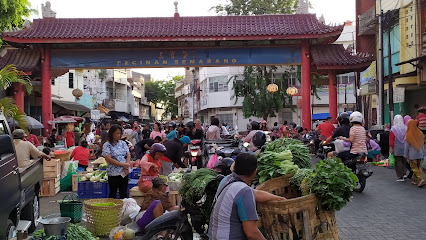
Old Town Semarang
Explore Old Town Semarang: A Historical Oasis of Colonial Charm and Cultural Richness in Central Java.
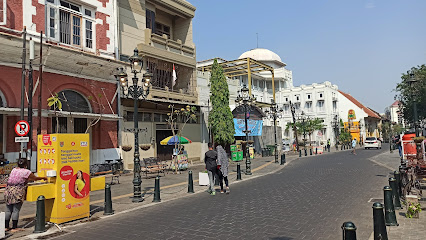
Semarang - Quartier Chinois - Chinatown
Explore the cultural richness and culinary delights of Semarang's Chinatown, a vibrant hub of history and flavor in Central Java.
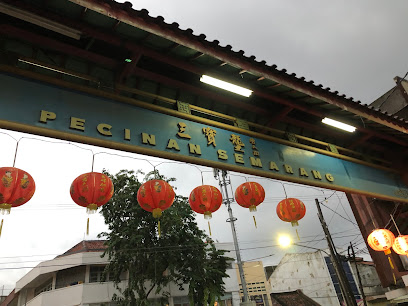
Srigunting Park
Discover the tranquil beauty of Srigunting Park in Semarang, a perfect destination for relaxation and family fun amidst nature's charm.
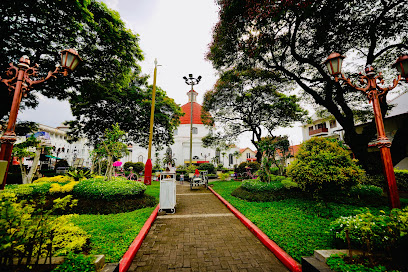
Gedung Marba ( Martak - Bajunaid ) - History of Yemeni Bussinesman - رجل أعمال يمني - in Semarang
Discover the rich history of Yemeni merchants at Gedung Marba, a stunning historical landmark in Semarang showcasing unique architectural beauty.
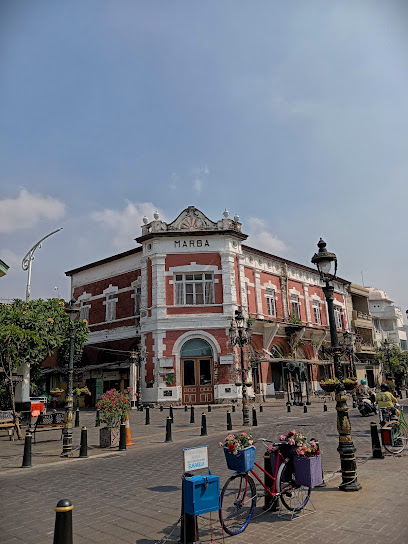
Pasar Imlek Semawis
Discover the vibrant Pasar Imlek Semawis in Semarang, where culture and culinary delights unite during the Lunar New Year celebrations.
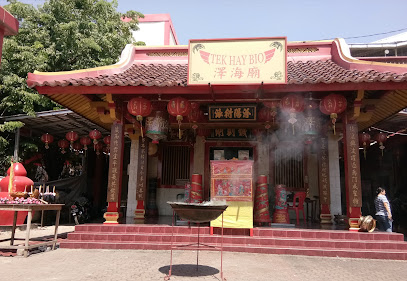
PATUNG CHENG HOO
Discover the cultural heritage of Semarang at Patung Cheng Hoo, a stunning statue celebrating Zheng He’s historical legacy.
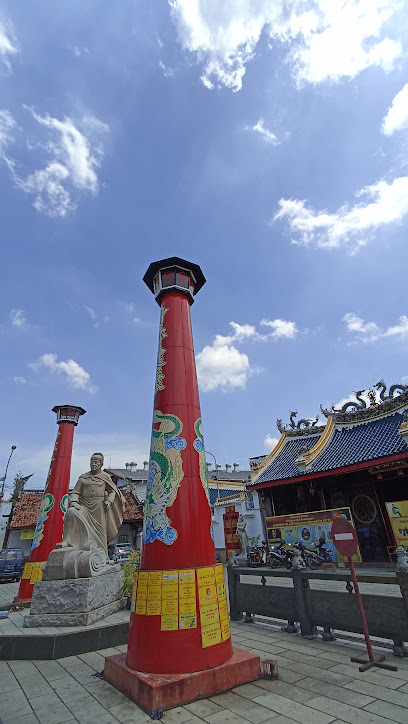
Wisata Millennial Kota Lama Semarang
Experience the vibrant blend of history and modern culture at Wisata Millennial Kota Lama Semarang, a must-visit destination for every traveler.
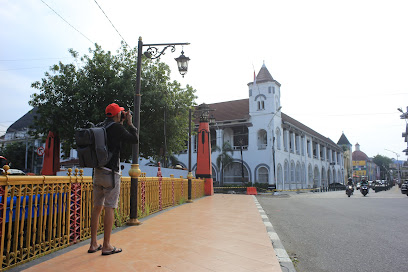
Zhènghé Diāoxiàng - 鄭和雕像 - Patung Zhèng Hé in Semarang
Explore the cultural significance of Zhènghé Diāoxiàng in Semarang, a stunning tribute to the legendary Chinese explorer Zheng He, surrounded by lush landscapes.
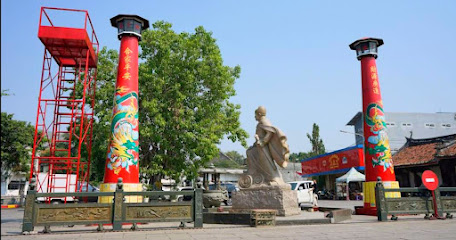
Unmissable attractions to see
Lawang Sewu
Explore the historical depths of Lawang Sewu, a stunning architectural masterpiece and museum in Semarang, Central Java, rich with stories and heritage.

Waroeng Semawis
Discover the vibrant flavors and cultural spirit of Semarang at Waroeng Semawis, a lively night market celebrating local cuisine.
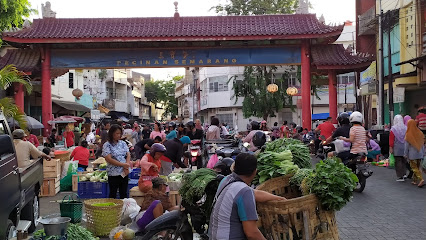
Taman Pandanaran
Discover the tranquil beauty of Taman Pandanaran, a lush city park in Semarang, perfect for relaxation, exploration, and enjoying nature's splendor.
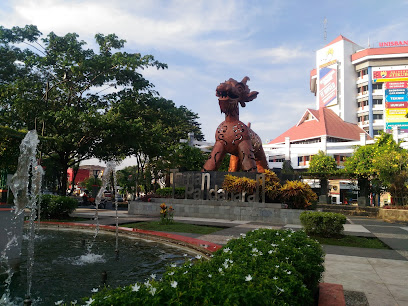
Taman Garuda
Discover tranquility at Taman Garuda, Semarang's serene park, where lush landscapes and nature's beauty await every visitor.
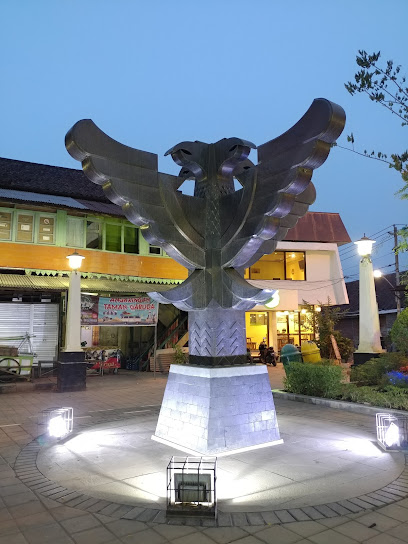
Wisata Millennial Kota Lama Semarang
Experience the vibrant blend of history and modernity at Wisata Millennial Kota Lama Semarang, where art, culture, and community come alive.
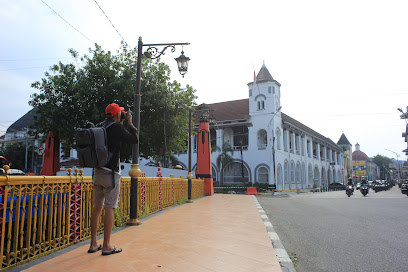
Essential places to dine
Spiegel All Day Bar & Dining
Discover culinary excellence at Spiegel All Day Bar & Dining in Semarang - where bistro charm meets vibrant nightlife.
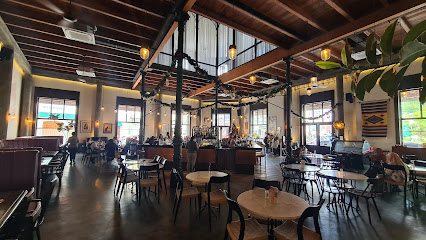
Toko Oen
Discover Toko Oen in Semarang – where traditional Indonesian flavors meet delightful ice cream creations.
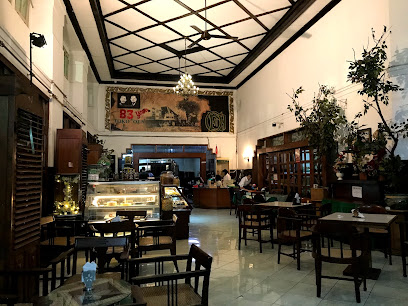
Shabu Auce Restaurant
Experience authentic shabu-shabu at Shabu Auce Restaurant in Semarang – a must-visit for food lovers seeking flavorful hot pot dishes.
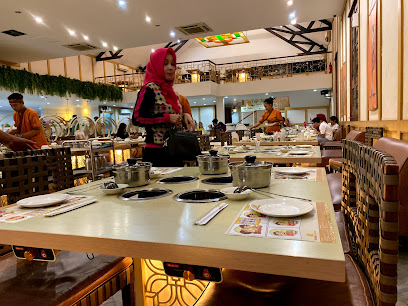
Permata Restaurant
Experience authentic Chinese cuisine at Permata Restaurant in Semarang - perfect for families seeking delicious flavors in an inviting atmosphere.
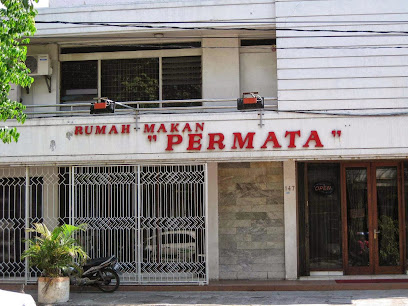
Happy Restoran
Experience the perfect blend of Chinese and Indonesian cuisine at Happy Restoran in Semarang - a culinary treasure waiting to be discovered.
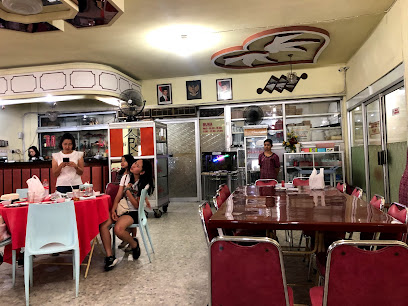
Sky Line - Lounge & Exclusive Dining
Experience fine dining at Sky Line Lounge in Semarang—where exquisite cuisine meets breathtaking city views for an unforgettable culinary journey.
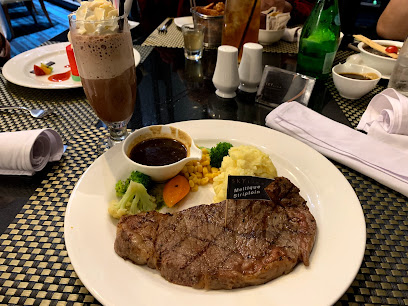
Nuansa bening F&B, majesti convention hall
Experience authentic Chinese cuisine at Nuansa Bening F&B in Semarang, perfect for family dining and special events.
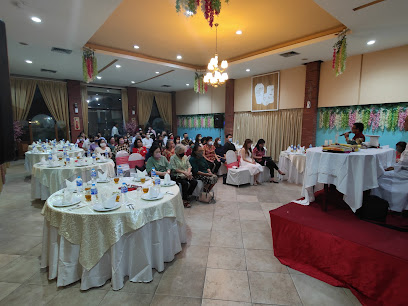
Cahaya Restaurant
Discover authentic Chinese flavors at Cahaya Restaurant, where every dish tells a story and each bite delights your senses.
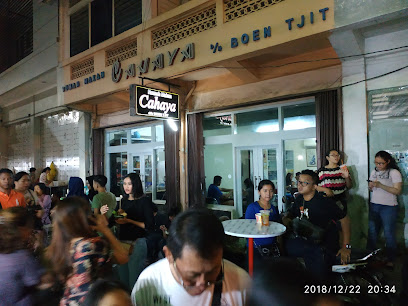
Marquess Restaurant
Savor exquisite Asian cuisine with stunning views at Marquess Restaurant in Semarang's Gumaya Tower Hotel.
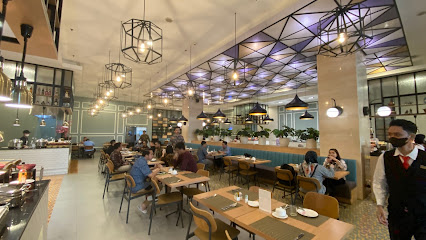
Mie Makmur
Discover Mie Makmur in Semarang - where authentic Asian noodles meet vibrant local culture for an unforgettable dining experience.
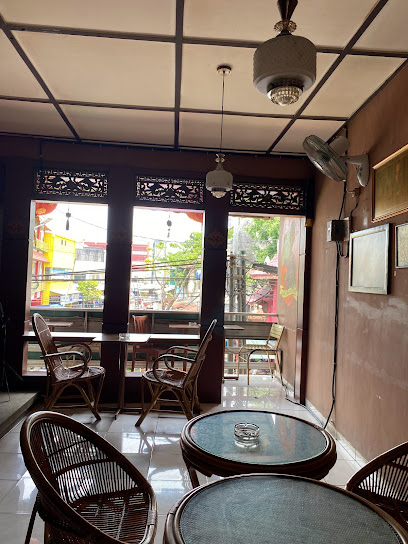
Markets, malls and hidden boutiques
Pollux Mall Paragon Semarang
Discover the ultimate shopping experience at Pollux Mall Paragon Semarang, where diverse stores meet delicious dining and family entertainment.
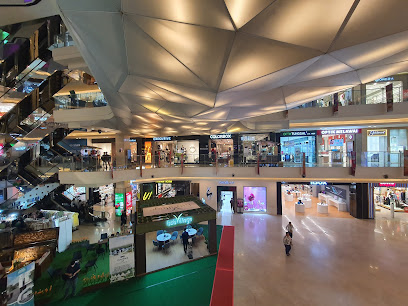
ABC Toko
Discover unique handcrafted jewelry at ABC Toko, a premier shopping destination in Semarang, Central Java, reflecting local artistry and culture.
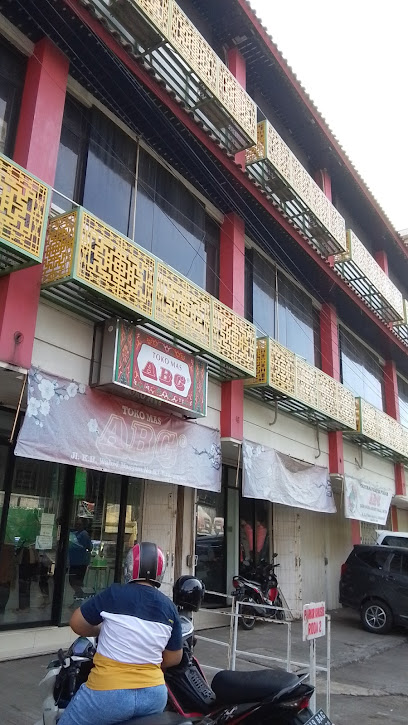
Sakura Fashion
Explore unique fashion at Sakura Fashion in Semarang, where local culture meets contemporary style for a shopping experience like no other.
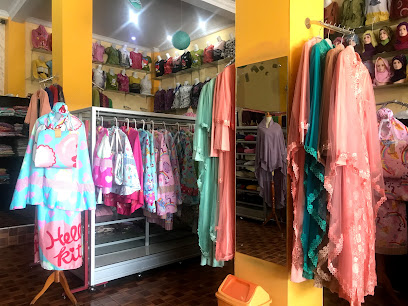
Toko Dua Belas
Explore Toko Dua Belas, the ultimate department store in Semarang, offering a wide range of products and a taste of local culture.
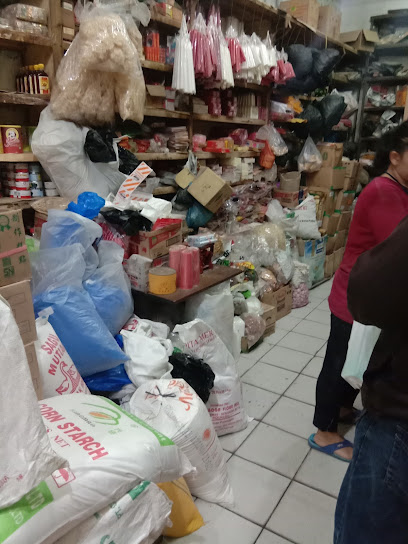
Cahaya Bintang Toko
Discover unique home goods at Cahaya Bintang Toko in Semarang, blending local craftsmanship with modern design for the perfect shopping experience.
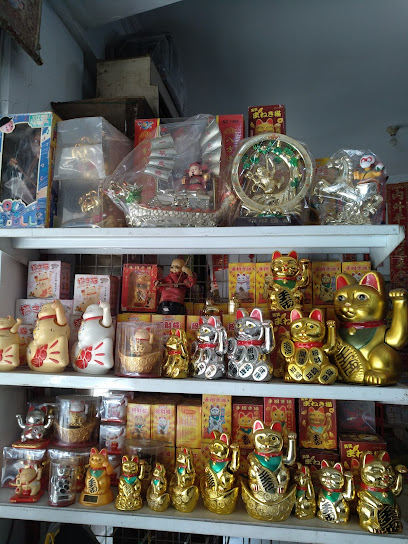
Osaki Fashion Matahari Johar
Discover stylish apparel and vibrant fashion at Osaki Fashion Matahari Johar, the perfect shopping spot in Semarang for trendy tourists.
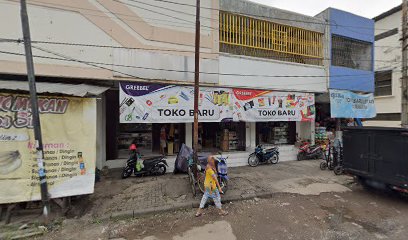
KIOS BUMBON JL.PEDAMARAN NO.69
Explore KIOS BUMBON in Semarang: your ultimate shopping destination for local crafts, fashion, and delectable Indonesian cuisine.
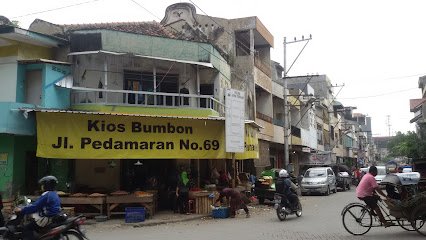
Beo Toko
Explore Beo Toko in Semarang for exquisite handcrafted jewelry that reflects authentic Indonesian artistry and craftsmanship.
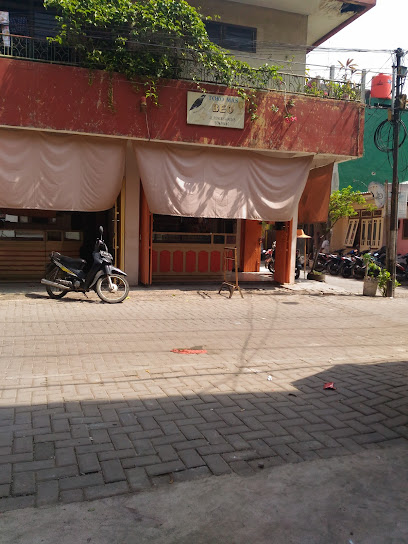
Civita Souvenir Johar
Explore authentic local craftsmanship at Civita Souvenir Johar, the ultimate gift shop in Semarang for unique Indonesian souvenirs.
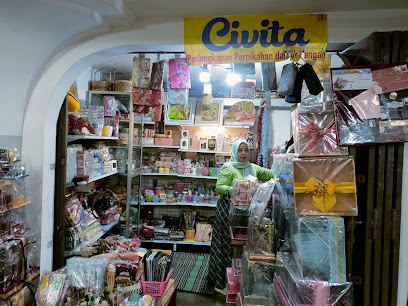
Art Sticker
Discover a world of creativity at Art Sticker in Semarang, where local artistry comes alive through unique and vibrant stickers.
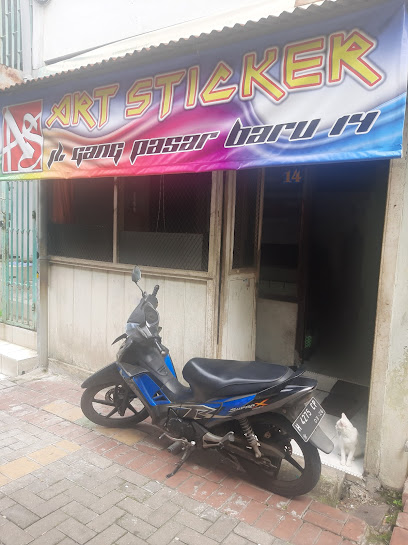
Essential bars & hidden hideouts
Sakapatat Beer Garden & Resto
Experience the vibrant atmosphere of Sakapatat Beer Garden & Resto, where grilled delights and refreshing drinks create the perfect dining escape in Semarang.
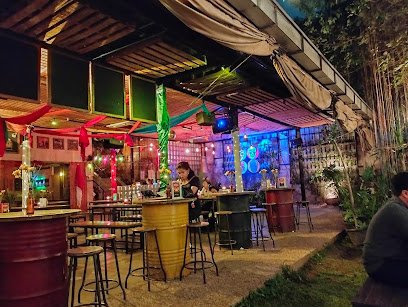
AtoZ Bar Wine & Brasserie
Experience the exquisite flavors of Semarang at AtoZ Bar Wine & Brasserie, a perfect blend of fine dining and vibrant nightlife.
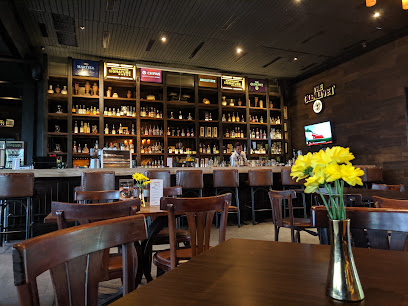
Wishbone Bar
Discover the best cocktails in Semarang at Wishbone Bar, a vibrant nightlife hotspot that combines local culture with exquisite drink offerings.
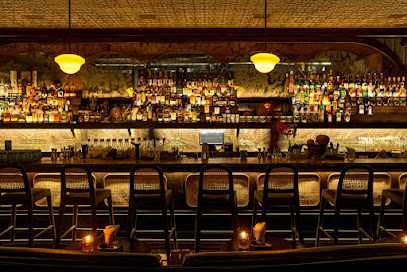
RED HARE BAR
Discover the lively ambiance of Red Hare Bar in Semarang – a perfect blend of bar, restaurant, and nightclub for unforgettable nights.
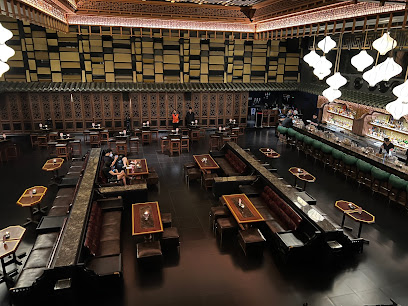
On On Pub
Experience the dynamic atmosphere of On On Pub in Semarang, where great food, refreshing drinks, and exciting sports come together.
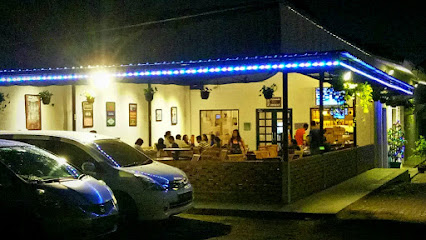
11/12 Rooftop Bar
Discover stunning views and a vibrant atmosphere at Semarang's premier rooftop bar, 11/12 Rooftop Bar, for an unforgettable night out.
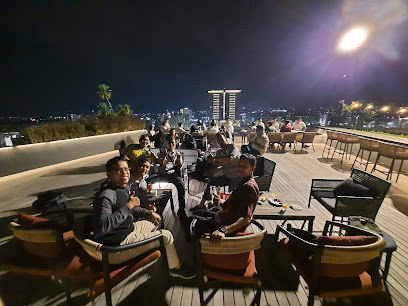
POTS Bar
Discover the vibrant nightlife of Semarang at POTS Bar, where creative cocktails and lively atmosphere await every night.
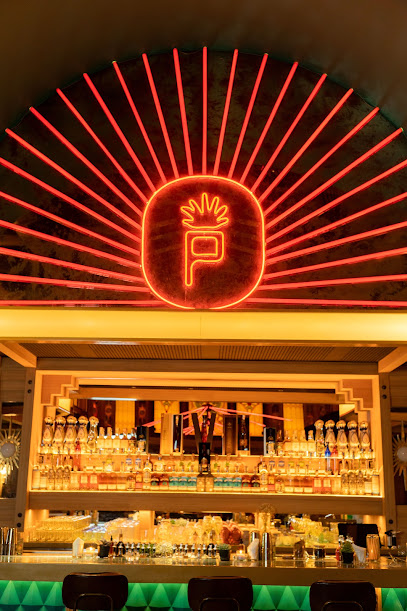
HW Livehouse Semarang
Discover the vibrant nightlife of Semarang at HW Livehouse, where music, culture, and relaxation collide for an unforgettable experience.
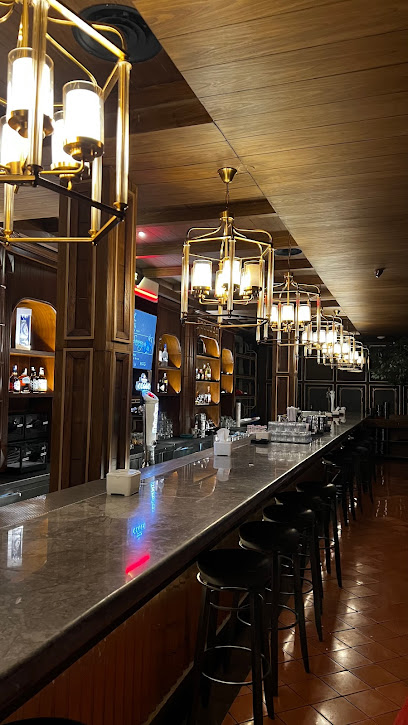
Bougenville Lounge Semarang
Experience relaxation and local charm at Bougenville Lounge Semarang, your perfect retreat in Central Java.
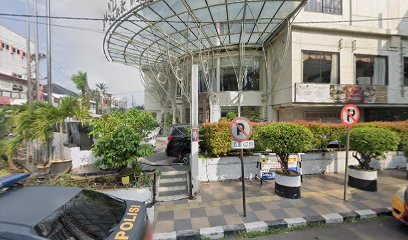
Tempat kerjq
Experience the vibrant nightlife of Semarang at Tempat Kerjq, where great drinks and fun meet in a lively atmosphere.
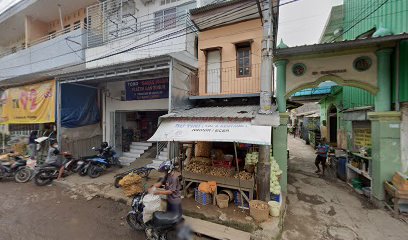
Local Phrases
-
- Hello您好
[nín hǎo] - Goodbye再见
[zàijiàn] - Yes是的
[shì de] - No不
[bù] - Please/You're welcome请
[qǐng] - Thank you谢谢
[xièxiè] - Excuse me/Sorry对不起
[duìbùqǐ] - How are you?你好吗?
[nǐ hǎo ma?] - Fine. And you?好。你呢?
[hǎo. nǐ ne?] - Do you speak English?您会说英语吗?
[nín huì shuō yīngyǔ ma?] - I don't understand我不懂
[wǒ bù dǒng]
- Hello您好
-
- I'd like to see the menu, please请给我看菜单
[qǐng gěi wǒ kàn càidān] - I don't eat meat我不吃肉
[wǒ bù chī ròu] - Cheers!干杯!
[gānbēi!] - I would like to pay, please我要付款,请
[wǒ yào fùkuǎn, qǐng]
- I'd like to see the menu, please请给我看菜单
-
- Help!帮帮我!
[bāng bāng wǒ!] - Go away!走开!
[zǒu kāi!] - Call the Police!叫警察!
[jiào jǐngchá!] - Call a doctor!叫医生!
[jiào yīshēng!] - I'm lost我迷路了
[wǒ mílùle] - I'm ill我病了
[wǒ bìngle]
- Help!帮帮我!
-
- I'd like to buy...我想买...
[wǒ xiǎng mǎi...] - I'm just looking我只是看看
[wǒ zhǐ shì kànkan] - How much is it?多少钱?
[duōshǎo qián?] - That's too expensive太贵了
[tài guìle] - Can you lower the price?可以降价吗?
[kěyǐ jiàngjià ma?]
- I'd like to buy...我想买...
-
- What time is it?现在几点了?
[xiànzài jǐ diǎnle?] - It's one o'clock现在一点了
[xiànzài yī diǎnle] - Half past (10)十点半
[shí diǎn bàn] - Morning早上
[zǎoshang] - Afternoon下午
[xiàwǔ] - Evening晚上
[wǎnshang] - Yesterday昨天
[zuótiān] - Today今天
[jīntiān] - Tomorrow明天
[míngtiān] - 1一
[yī] - 2二
[èr] - 3三
[sān] - 4四
[sì] - 5五
[wǔ] - 6六
[liù] - 7七
[qī] - 8八
[bā] - 9九
[jiǔ] - 10十
[shí]
- What time is it?现在几点了?
-
- Where's a/the...?....在哪里?
[.... zài nǎlǐ?] - What's the address?地址是什么?
[dìzhǐ shì shénme?] - Can you show me (on the map)?你可以给我看(地图上)吗?
[nǐ kěyǐ gěi wǒ kàn (dìtú shàng) ma?] - When's the next (bus)?下一辆车是什么时候?
[xià yī liàng chē shì shénme shíhòu?] - A ticket (to ....)一张票(到....)
[yī zhāng piào (dào....)]
- Where's a/the...?....在哪里?
History of Chinatown Semarang
-
Chinatown Semarang, known as 'Kota Cina', traces its roots back to the 15th century when Chinese immigrants began settling in the region. They were drawn to Semarang due to its strategic location as a port city, which facilitated trade and commerce. The area became a melting pot of cultures, significantly influencing Semarang's economic landscape.
-
By the 17th century, Semarang had established itself as a crucial trading hub within the Indonesian archipelago. The Chinese community thrived in Chinatown, engaging in various trades such as textiles, spices, and ceramics. The architectural style of the area reflects this prosperous period, with traditional Chinese temples and shophouses lining the streets.
-
During the Dutch colonial period, Chinatown Semarang faced challenges, including discrimination and economic restrictions. However, the Chinese community adapted by creating vibrant markets and cultural institutions. The area's unique cultural identity was further shaped by intermarriage and collaborations with local Javanese populations, leading to the emergence of a hybrid culture.
-
World War II brought significant hardships to Chinatown Semarang. The Japanese occupation led to the persecution of Chinese Indonesians, disrupting the community's social fabric. Many were forced into labor camps, and businesses struggled to survive. This tumultuous period left deep scars, but the resilience of the community allowed for gradual recovery post-war.
-
In recent years, Chinatown Semarang has undergone revitalization efforts aimed at preserving its historical and cultural significance. The local government and community organizations have worked together to restore heritage sites, promote tourism, and celebrate traditional festivals, such as the Chinese New Year. This resurgence highlights the neighborhood's rich cultural tapestry and its enduring legacy in Semarang.
Chinatown Semarang Essentials
-
Chinatown Semarang is easily accessible from various neighborhoods in Semarang. If you're coming from the city center, you can take a local bus or a taxi. The most commonly used bus route is the Trans Semarang service, which has stops near Chinatown. If you're arriving at Semarang's Achmad Yani International Airport, you can take a taxi or an online ride-hailing service for a convenient journey of about 15-30 minutes.
-
Chinatown Semarang is a walkable neighborhood with many attractions close to each other. You can explore on foot or rent a bicycle from local shops. Public buses also operate within the area, but they may not be as frequent. Taxis and ride-hailing services are widely available for longer distances or to nearby attractions.
-
Chinatown Semarang is generally safe for tourists, but it's wise to take standard precautions. Avoid poorly lit streets at night and keep valuables secure. Areas to be cautious of include some side streets where petty crime can occur, especially after dark. Always be aware of your surroundings and trust your instincts.
-
In case of emergencies, dial 112 for police assistance or 118 for ambulance services in Indonesia. There are hospitals and clinics located within Semarang, with some in or near Chinatown. It is advisable to have travel insurance that covers medical emergencies. For minor health issues, pharmacies are available throughout the neighborhood.
-
Fashion: Do wear lightweight and breathable clothing due to the tropical climate, but avoid overly revealing outfits, particularly in religious areas. Religion: Do respect local customs, especially when visiting temples and mosques; cover your shoulders and knees. Public Transport: Do be polite and offer your seat to the elderly. Don’t engage in loud conversations or eat on public transport. Greetings: Do greet locals with a friendly smile; a nod is often appreciated. Eating & Drinking: Do try local street food, but avoid eating in public places if it seems inappropriate; don’t waste food, as it is seen as disrespectful.
-
To experience Chinatown Semarang like a local, visit the traditional markets early in the morning for fresh produce and local snacks. Engage with local vendors, as they are often open to sharing their stories. Make sure to try the local delicacies such as lumpia (spring rolls) and tahu gimbal (tofu salad). Attend local festivals if you're there during Chinese New Year for vibrant celebrations. Lastly, learn a few basic phrases in Indonesian or Mandarin to connect with the locals.
Trending Landmarks in Chinatown Semarang
-
Lawang Sewu
-
Wisata Sam Poo Kong
-
Tugu Muda Semarang
-
Waroeng Semawis
-
Old Town Semarang
-
Semarang - Quartier Chinois - Chinatown
-
Srigunting Park
-
Gedung Marba ( Martak - Bajunaid ) - History of Yemeni Bussinesman - رجل أعمال يمني - in Semarang
-
Pasar Imlek Semawis
-
PATUNG CHENG HOO
-
Wisata Millennial Kota Lama Semarang
-
Zhènghé Diāoxiàng - 鄭和雕像 - Patung Zhèng Hé in Semarang
Nearby Cities to Chinatown Semarang
-
Things To Do in Yogyakarta
-
Things To Do in Surabaya
-
Things To Do in Bandung
-
Things To Do in Jakarta
-
Things To Do in Bali
-
Things To Do in Poon Saan
-
Things To Do in Settlement
-
Things To Do in Flying Fish Cove
-
Things To Do in Drumsite
-
Things To Do in Greta Beach
-
Things To Do in Kuching
-
Things To Do in Balikpapan
-
Things To Do in Makassar
-
Things To Do in East Coast Park
-
Things To Do in Sentosa






